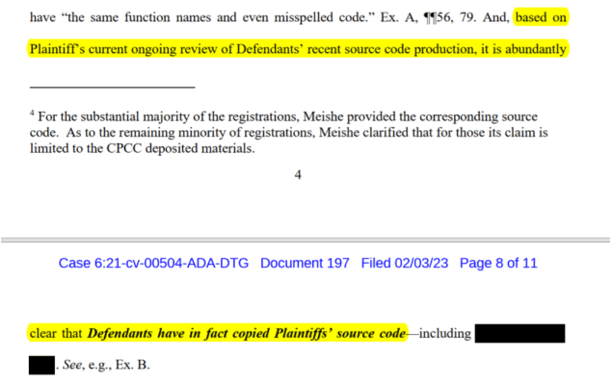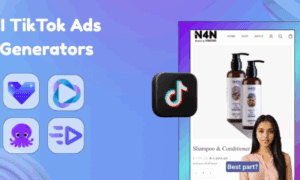According to a filing with the United States District Court for the Western District of Texas, which can be found in U.S. federal court records, Meishe’s review of TikTok’s source code has found that TikTok in fact copied Meishe’s source code, and the copying is extensive.
Beijing Meishe Network Co., Ltd. was founded in 2014. According to the company’s official website, the R&D team members have more than 20 years of experience in the development of video and audio products and own more than 70 patents in this area.
Launched in May 2017, TikTok is a social media platform for short videos that is owned by ByteDance. Since 2021, TikTok has surpassed Facebook to take the top spot for software downloads worldwide and Google to claim the title of most-visited website worldwide. Now, TikTok has over 1 billion DAU and approximately 66 million downloads.
In April 2021, Beijing Meishe Network Technology Co., Ltd. sued ByteDance Ltd. and several affiliated companies for infringement of software copyright and technical secrets in China. In May 2021, Beijing Meishe Network Technology Co., Ltd. filed a lawsuit against TikTok Inc., TikTok Pte. Ltd., ByteDance Ltd., And ByteDance Inc. in the United States District Court for the Western District of Texas Waco Division.
Furthermore, the allegation of source code copying by TikTok raises important questions about the protection of intellectual property in the tech industry. It highlights the need for companies to take measures to safeguard their intellectual property, such as patents and trade secrets, in order to prevent unauthorized use or infringement. At the same time, it underscores the importance of transparency and accountability in the industry, as well as the need for mechanisms to address disputes related to intellectual property.
The outcome of this legal battle between Meishe and TikTok could have implications beyond these two companies. It could set a precedent for how intellectual property disputes are handled in the tech industry, and could influence the strategies of other companies in terms of protecting their own intellectual property. Ultimately, it is essential for the industry as a whole to prioritize ethical and legal practices, and to work together to create a fair and competitive landscape that promotes innovation and growth.
Conclusion
Meishe’s review of TikTok’s source code has found evidence that TikTok copied Meishe’s source code, and that the copying was extensive. This accusation has led to lawsuits filed by Meishe against TikTok and its affiliated companies for copyright and technical secret infringement.
It is worth noting that intellectual property theft and infringement can have serious consequences for both the accused and the accuser. If the allegations made by Meishe are found to be true, TikTok and its affiliated companies could face legal and financial penalties. On the other hand, if Meishe’s claims are found to be unsubstantiated, the company could face a loss of credibility and reputation.
In any case, the outcome of these lawsuits remains to be seen, and it is important for both companies to respect intellectual property rights and engage in fair competition. As the use of technology continues to grow and evolve, it is likely that issues of intellectual property and copyright infringement will continue to arise, and it is essential for all parties to adhere to legal and ethical standards in order to maintain the integrity of the industry.



































